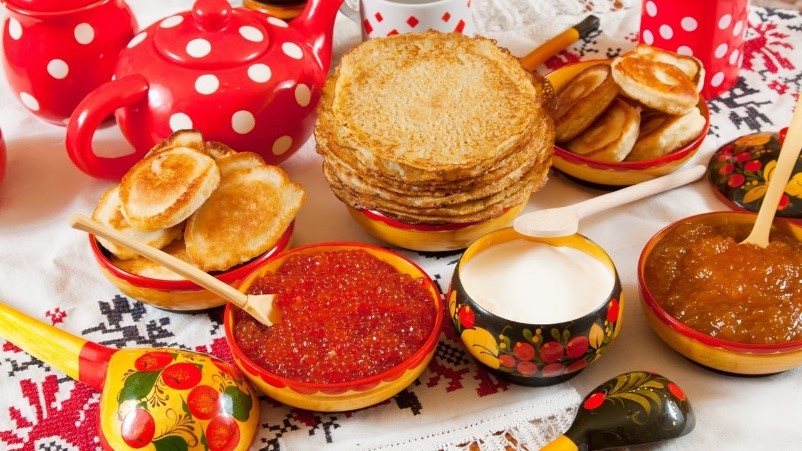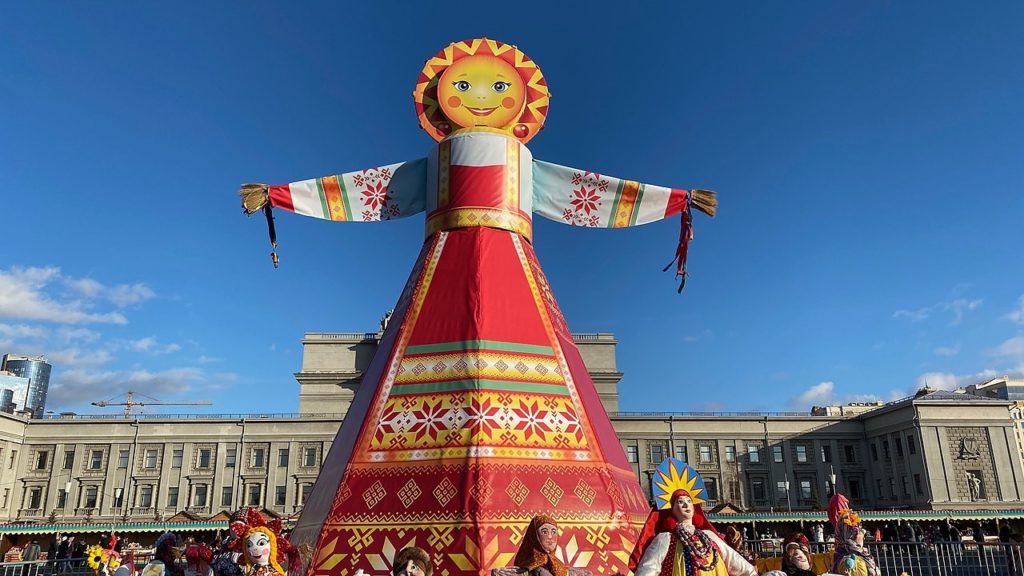
What is widely known as Pancake Day or Shrove Tuesday in the UK, is in fact a week-long traditional Slavic celebration that takes places prior to the beginning of Lent, the Christian period of fasting and spiritual reflection leading up to Easter. Maslenitsa is often a time to indulge in rich foods before Lent in which these may be prohibited, participate in traditional folk festivities and bid farewell to winter.

The origins of this Maslenitsa holiday can be traced back to pagan times, as the annual celebration of the end of winter and the beginning of spring. The holiday was dedicated to the Slavic goddess of fertility and agriculture, and people celebrated by feasting and making offerings to the gods. With the arrival of Christianity in Russia, Maslenitsa was transformed into a pre-Lenten holiday.
The name ‘Maslenitsa’ comes from the Russian word ‘maslo’, meaning ‘butter’ or ‘oil’ referring to the tradition for people to eat a lot of rich foods during this time, including ‘blinis’, Russian pancakes made with butter, eggs, and milk.

The main symbol of Maslenitsa is a scarecrow called ‘Lady Maslenitsa’ who is traditionally burned at the end of winter to symbolise the season’s end. People may also participate in traditional folk dances, such as the ‘khrovod’ and the ‘troika’.
Whilst Maslenitsa has its roots in pagan traditions, it is now an important aspect of Russian orthodox culture. The holiday is a time to come together with family and friends, enjoy good food and drink and celebrate the arrival of spring.
